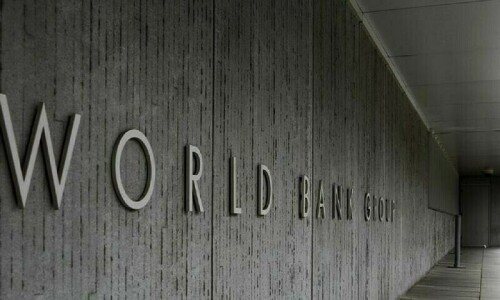ISLAMABAD: Pakistan’s annual inflation fell to 1.72 per cent in August 2015 from 1.80pc in the previous month, the lowest year-on-year inflation recorded in over 12 years, Pakistan Bureau of Statistics (PBS) data showed on Tuesday.
PBS Chief Statistician Asif Bajwa attributed the fall to lower electricity and international oil prices.
On a month-on-month basis, prices fell by 0.24pc in August from July, he added.
Average inflation in July-August 2015-16 was 1.76pc, the lowest in recent past.
Former Economic Adviser Ashfaq H Khan said the lowest inflation indicates that Pakistan economy has landed in deflation.
In the last three years, Pakistan has been following its stabilisation plan dictated by the IMF, which has suffocated the economy.
“This approach has destroyed demand and now destroying the supply side as well,” he said.
Producers are not borrowing to expand their businesses, industrial growth has stagnated and accordingly exports have declined.
“Pakistan needs to change its fiscal policy stance from austerity to expansionary along with growth critical reforms,” the former adviser said.
Successive downward revisions in petroleum prices and a stable rupee along with subdued global commodity prices were the main reasons behind low inflation.
According to an official report, in 2014-15, crude oil prices dipped by 45pc, followed by wheat 31pc, palm oil 27pc, sugar 26pc, soybean oil 25pc, urea 11pc and tea 8pc.
Core inflation — which is measured by excluding volatile food and energy prices — slowed for the 11th consecutive month in August to 4pc compared to 4.1pc in the previous month.
Falling inflation has also encouraged the SBP to cut its key interest rate to a 42-year low (7pc). Core inflation has remained subdued since November 2014, because of a tighter monetary policy and reduction in food and fuel prices.
In August 2015, food inflation stood at 0.4pc, mainly due to 0.93pc increase in price of non-perishable items. However, price of perishable items dipped by 8.08pc.
The food items whose prices increased included tomatoes (33.09pc), fresh vegetables (17.87pc), eggs (12.46pc), tea (7.21pc), gram pulse (6.54pc), besan (4.39pc), potatoes (3.65pc), and gram whole (3.05pc).
Non-food inflation stood at 2.7pc; the price of electricity rose by 1.47pc.
Average inflation measured through the Sensitive Price Index (SPI) was negative 0.99pc in July-August 2015, while Wholesale Price Index (WPI) was negative 2.87pc.
Lower WPI reflects less demand for domestic commodities, apparently because of low purchasing power.
The entrance of manufacturing sector into a negative growth indicates deflation in the economy.
Published in Dawn, September 2nd, 2015
On a mobile phone? Get the Dawn Mobile App: Apple Store | Google Play














































